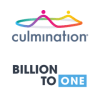Tucked into its second quarter earnings report, Regeneron Pharmaceuticals said it had plans to roll out a direct-to-consumer campaign for the company's top-selling product Eylea (aflibercept) in the back half of this year.
The campaign, which has since launched, may seem unnecessary at the surface level, given how Eylea is a dominant brand in multiple eye disease markets. Regeneron recorded global sales of the drug were $1.66 billion from April through June — 13% higher than the same period a year prior and 3% higher than analysts' consensus estimates.
The big biotech has also enjoyed around 20% annual revenue growth for the past couple years, and recently launched another blockbuster hopeful.
Noteworthy, though, is where Eylea's sales are coming from. Regulators first approved the drug for wet age-related macular degeneration (AMD), and later expanded its label to include diabetic macular edema (DME) as well as diabetic retinopathy in DME patients. Executives noted during their recent earnings report that just 25% of Eylea sales come from DME, and the company has only broken into less than 25% of that market thus far.
Ergo, Regeneron is focusing on those patients with its DTC campaign, which includes television, print and online consumer advertisements, a web-based chatbot named "Lea" that will answer questions on wet-AMD and DME on the Eylea brand website, and an Eylea YouTube channel that will also provide information about the two diseases and their treatment.
"When developing our Eylea consumer advertisements, we found that there was a strong desire among this community to learn more about their disease and how they could better help manage it — and television and print was a key way to reach them," Regeneron wrote in an emailed statement to BioPharma Dive. "As a result, we decided to focus our first television and print advertising efforts on this [DME] population."
A worthwhile campaign?
Regeneron declined to give financial details about its new campaign, but it wouldn't be surprising to see the company spending a pretty penny.
While pharmas spent less on DTC last year than in 2016, the investment still totals in the billions. Consultancy Kantar Media estimated the spend on just DTC campaigns for cancer drugs at more than $500 million in 2017. Also in that vein, television analytics firm iSpot.tv recently estimated that Novo Nordisk had splashed nearly $1 million on a new DTC campaign for Ozempic (semaglutide) by Aug. 1 — just two days after the Danish drugmaker launched a television commercial for the diabetes medicine.

Whatever Regeneron's investment, the return will likely be larger. One 2014 study suggests at least 750,000 people in the U.S. aged 40 or over have DME, offering an enormous base of potential Eylea patients.
"Certainly from a marketer cost perspective, campaigns with a larger patient population are going to, on the surface, offer a more immediate and obvious R.O.I.," Erin Byrne, CEO of healthcare marketing firm greyhealth group, told BioPharma Dive in an interview.
Indication is key
Targeting a new or harder-to-break into indication with DTC has also become a more prominent play for pharmaceutical marketers.
"The label expansion is a great use of DTC," Byrne added. "We're starting to see that increasingly it's consumer advertising, but doctors are people too and clearly their strategy there is to maintain their market leadership in an increasingly competitive market by leveraging DTC to drive quick uptake on the indication expansion. That makes perfect sense to me."
It's a strategy Regeneron has adopted across the Eylea franchise, not just in marketing.

For instance, the Food and Drug Administration should have an approval decision any day now for a once every 12 weeks dosing schedule for Eylea in wet-AMD. Regeneron has also submitted supplemental Biologics Licensing Applications for the drug in the non-proliferative diabetic retinopathy setting and in a pre-filled syringe formulation.
If approved, the label updates would make Eylea that much more difficult to compete with for rival therapies like Roche's Lucentis (ranibizumab) and Avastin (bevacizumab).
"Though Eylea is the oldest product for Regeneron, the company has finally recognized the value and importance of line extensions to the durability and overall value of such a franchise," Leerink analyst Geoffrey Porges wrote in an Aug. 3 investor note. "The company now has multiple significant enhancements underway for 2018 and 2019 that should raise the bar for entry and commercialization of any of the rotating array of two-year-away competitors."
"By comparison, the forthcoming competitors had less than stellar data in Q2, with ... unacceptable 15-16% rates of ocular inflammation in Allergan’s abicipar ... and Roche disclosing dose-dependent safety risks of gastrointestinal disorders, procedural complications, and nervous system disorders for its Lucentis Port Delivery System that were up to [10 times] the adverse event rates of injectable Lucentis," Porges added.






















